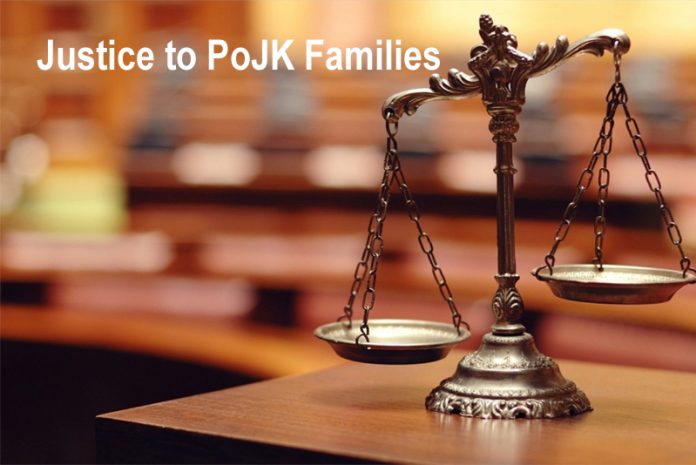For over seven decades, 5,300 families displaced from Pakistan-occupied Jammu and Kashmir (PoJK) in 1947 have endured a double tragedy: forced displacement from their homeland and exclusion from rehabilitation efforts. This exclusion has finally come to an end with a landmark verdict of High Court of J&K & Ladakh promising equal treatment and a one-time settlement package. In 2014, the Jammu & Kashmir Government proposed a one-time compensation of Rs. 25 lahks per family for displaced families from PoJK and Chhamb, totalling Rs. 9096 crore. However, the Central Government, after due consideration, offered Rs. 5.5 lakh per family, arguing that past aid packages had already provided land, housing, or cash assistance. This sanctioned sum was intended to help families start small businesses, invest in annuities, and achieve sustainable financial stability. The disbursement process was aimed at being completed within 4 months of the funding release.
The Court ruling comes after years of legal battles where the shared theme echoed the sentiments of being “alike in pain and deprivation but disliked in relief and rehabilitation.” Despite the natural course of time assuaging some of their suffering, the legislative and administrative machinery failed to address their grievances, perpetuating intergenerational suffering and deprivation. The Court’s decision recognises the shared pain and suffering of all displaced families, regardless of where they settled after the partition. It dismantles the arbitrary distinction made by previous Governments, which denied benefits to those who settled outside the erstwhile state of Jammu and Kashmir. This “text-oriented” exclusion, based on a single definition in an Act, had perpetuated their hardships and left them feeling ostracised. The verdict exposes the “political motive” behind this exclusion, highlighting how successive Governments exploited the limited constitutional relationship to shield their discriminatory decisions. This “domain of decision-making” became a barrier to justice, denying basic rights and entitlements to deserving families.
This decision is not just about financial compensation; it’s about acknowledging their suffering, restoring their dignity, and offering a semblance of closure. The unutilized funds from the existing package and the Government’s commitment to bear additional costs, if necessary, demonstrate a genuine desire to heal the wounds of the past. Crucially, the judgement recognised that a significant portion of the allocated funds remained underutilised. It urged the Government to utilise the funds and ensure the inclusion of all displaced families in the rehabilitation process, thereby alleviating their pain and suffering.
Additionally, the displaced families from West Pak have already been duly granted domicile certificates, aligning them with other residents of the Union Territory. Consequently, they are now eligible for various benefits, including medical insurance coverage, employment opportunities, and reservations, akin to those extended to the inhabitants of Jammu and Kashmir. However, challenges remain. Implementing the court’s directive within six months requires swift action and streamlined procedures. Identifying eligible families across different states might pose logistical hurdles, and ensuring transparency and fairness in the process is crucial.
Furthermore, this verdict sets a precedent for addressing other historical injustices faced by displaced communities. It compels authorities to examine existing policies and practices with an inclusive lens, ensuring no one is left behind in the pursuit of equality and justice. The High Court’s verdict is a beacon of hope for the 5,300 families who have waited for decades.
Trending Now
E-Paper


